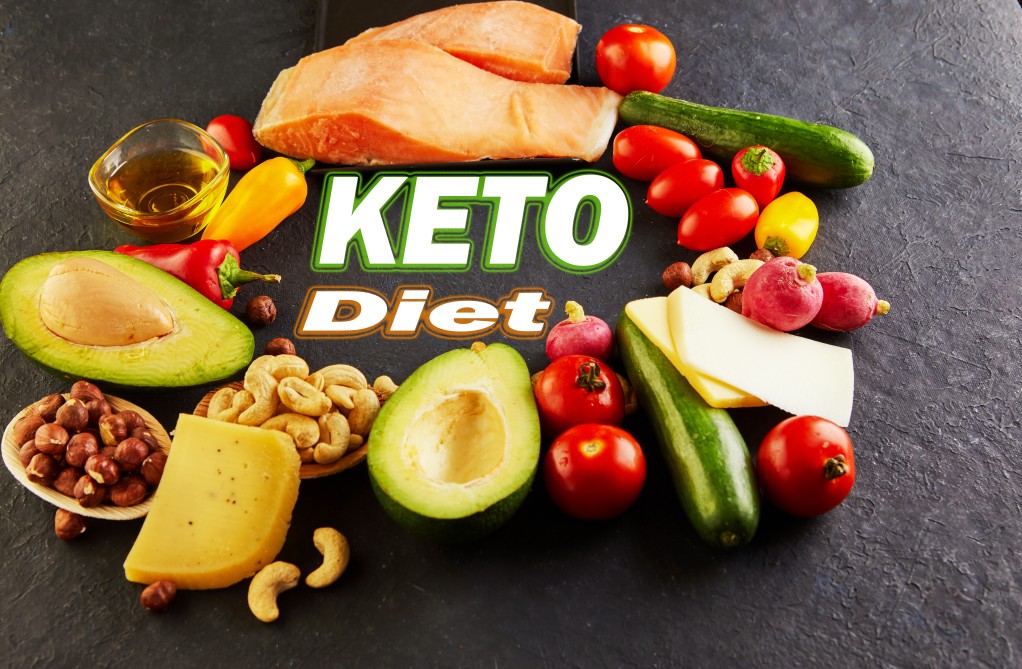There are a lot of common questions related to the keto diet, in this article we try and address a couple of the more common ones
Q: How can it be healthy to cut out carbs from my diet?
A: The ketogenic diet does allow you to eat non-starchy vegetables, which are the healthiest carbs. It is the unhealthy carbs that are cut out, like refined sugar and sweets that do nothing but harm the body along with grains, like rice and pasta, and whole grains, which are counterproductive to weight loss and ketosis.
Another important factor is that while you eliminate carbs, you also increase intake of healthy fats and certain fats are very good for you, including avocado, meats, butter, cheese, coconut, and olive oil.
Eating fat in the a low carb diet promotes fat burning, and remember many studies have shown that low carb diets are more effective than low fat diets in both weight lost and reducing heart disease risk factors.

Q: Won’t the high fat intake cause high cholesterol?
A: Evidence suggests that the opposite is true. Low carb eating has an edge over low-fat diets for improving good HDL cholesterol levels over the long term as shown by one of the longest studies done on the subject (but not the only one) and funded by the National Institutes of Health (published in the journal, Annals of Internal Medicine).
Q: Aren’t whole grains good for me?
A: Whole grains are insulin triggers, and while they are often portrayed as healthy and necessary in a western diet, and that maybe true in some aspects, the fact is that whole grains often have a higher glycemic index than sugar itself.
This means that eating raw sugar causes less of an insulin response in your body than a slice of bread. Many experts agree that humans can live without whole grains, and evolution apparently agreed, as early civilizations of man did not have access to grains and managed to thrive and survive.
Q: Are there any side effects to cutting out carbs?
A: Some people experience digestion and diarrhea problems, but this common side effect typically goes away after about four weeks. Eating more high-fiber vegetables, like leafy greens and broccoli helps and magnesium supplements can alleviate constipation.
Q: I only need to lose 20 pounds, is a keto diet for me?
Definitely, keto can help you lose 20 pounds or a 150 pounds. It can also help you gain more energy, and get control of your appetite. You should also aim to get a decent amount of exercise as well though to maximise the benefits
Q: How long will it take to reach ketosis?
A: Ketosis begins when the glycogen in the liver is depleted. When you limit carbs to 50 net grams or less daily it typically takes no longer than 24 hours to enter a state of ketosis.
Q: Is frequent urination normal?
A: Yes because the first two weeks of carb depletion is when a lot of water weight loss occurs as the liver begins to deplete its glycogen levels. You should aim to drink more water and pee on!
Q: Will I ever be able to eat pasta, bread or sugar again?
A: When following the Ketogenic diet it is very important to be strict in the elimination of carbs initially, to allow the body to fully enter ketosis. As you begin to lose weight, you can slowly integrate some carbs into your diet, typically in the form of more vegetables, nuts, and possibly berries.
However, you need to monitor your weight loss to see how these carbs effect it, in order to find the right balance.
Once you reach your weight loss goals, you can indulge on occasion, but then return to the diet immediately. As with any healthy eating strategy, moderation is always key.
Keep in mind, keto is a lifestyle not a temporary diet, so you must be vigilant about your choices, basically forever, and returning to high carb eating will only lead to weight gain.
The common sense viewpoint is that whenever you return to a lifestyle that made you overweight to begin with, it can only do so again and again.
Q: How can I deal with missing sweets and carbs?
A: There is an adjustment period, and there may be struggles, but the truth is once you kick the sugar habit, your body and mind will adjust and you will be better for it.
Q: Is there a risk of muscle loss on low carb diets?
A: Many diets pose this risk, even the every day crappy eating that is so rampant in society with junk and processed food filling super market shelves.
The high protein and ketone levels in a low carb diet help minimize muscle loss and it is always recommended to anyone to participate in regular strength training as part of an overall healthy lifestyle.

